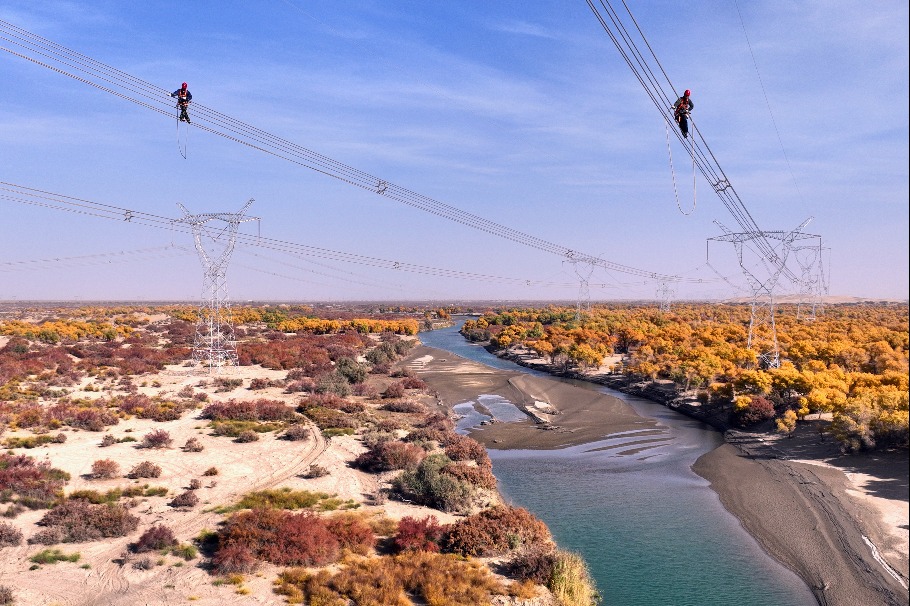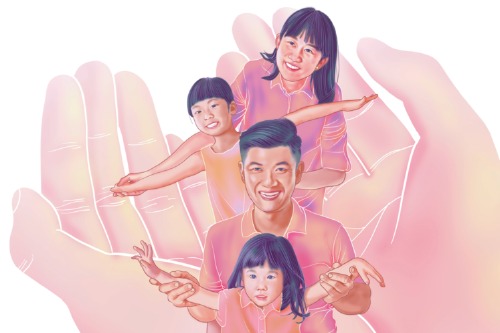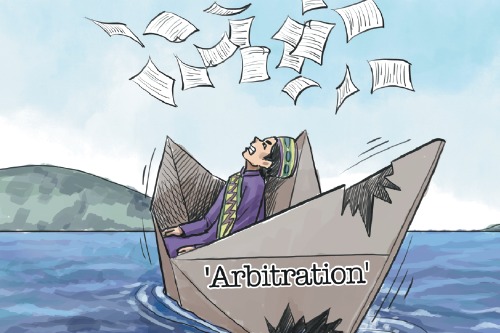China's war on poverty


Some firsthand impressions from the front lines of the country's poverty alleviation battle
On July 31, 2019, PBS SoCal, the PBS flagship public television station serving 19 million people across Southern California, premiered the documentary Voices from the Frontline: China's War on Poverty.
Portraying the country's strategies and structures to eradicate absolute poverty nationwide by 2020, this was the first in-depth documentary about China's poverty alleviation campaign to be broadcast abroad.
The international film crew, including myself as host and writer, had unprecedented access to the country's massive poverty alleviation programs. We met poor villagers, local officials, special monitors-those being lifted out of poverty, those assigned to do the lifting and those recruited to do the checking.
We visited poor households in five provinces and one autonomous region-Guizhou, Gansu, Shanxi, Sichuan and Hainan provinces and the Xinjiang Uygur autonomous region-and interviewed government officials at the central, provincial, city, county, township and village levels, recording a large quantity of firsthand information about the poverty alleviation programs.
Focusing on six cases, the documentary presents an intimate record of China's "targeted poverty alleviation" and explains the "five methods" for achieving targeted poverty alleviation: industry, creating sustainable micro-businesses; relocation, moving people from remote areas; education and training; ecological compensation for those living in environmentally vulnerable areas; and social security, medical subsidies and direct payments to those who cannot work.
It captures in verité-style grassroots stories: a young Party secretary working in a remote village; a Gansu girl who changed her fate through education; a Kazakh herder who lifted himself out of poverty by raising camels; the elderly of Guizhou who were relocated out of their remote mountain villages; the third-party evaluating teams whose independent checks enable greater accuracy and honesty; and the Party secretaries at five levels of local government who coordinate the poverty alleviation tasks and pledge to achieve their poverty-alleviation goals.
Our cameras followed Huang Haijun, the young first secretary of Lingmen village, Qiongzhong county, Hainan province: providing "precision" identification of poor families, visiting impoverished households to understand their circumstances, and implementing assistance measures customized to each household. The documentary also recorded the living and working conditions of grassroot poverty alleviation workers, and it presents firsthand accounts of poverty alleviation officials at all levels.
Every poor family in China has its own file, each with its targeted plan to lift each above the line of absolute poverty-that's millions of poor families with customized plans, each monitored regularly and reported centrally.
Equally startling, local officials are dispatched to impoverished villages to manage poverty alleviation, often for two years. Moreover, Party officials on the front lines in fighting against poverty cannot leave their current posts and cannot be promoted unless and until they fulfill their specific, numeric, poverty-alleviation goals. We watched local officials being held accountable, their careers at stake.
We recorded on camera, for the first time, the entire process of a third-party assessment of poverty alleviation, capturing the little-known story of how the assessment teams forestalled local governments from mitigating surprise inspections, as well as accounts of poor households complaining about poverty-alleviation helpers who were "no shows".
We also traveled to Huishui county in Guizhou province, where the relocation of whole villages was underway. From remote mountain hamlets, villagers were being moved to Mingtian community, 70 kilometers away.
The housing is free for villagers who relocate here. A family of four receives up to 80 square meters of living space, 20 per person. The government also covers all basic amenities, including sofas, beds, kitchenware and TVs.
Of course, not everyone from the villages wanted to move to the new communities. We spoke with the Party secretary in Daijing village whose job was to convince the few remaining villagers to relocate. It is policy that neither he nor the government can force people to relocate.
In such a massive country, with career stakes high and the poverty alleviation funding vast, cheating and stealing are no surprise.
One aspect of the poverty alleviation that especially impressed me was the system put in place to mitigate wrongdoing. The idea is that since the third-party evaluators come from completely different regions, they will not be likely to know any of the officials whom they will be evaluating and thus not be swayed by personal relationships.
Their task is to evaluate both the successes and the challenges of the poverty alleviation process-and to assess how well officials are doing their jobs. When officials are pressured to meet their firm objectives in a compressed period of time, some may cut corners or fudge numbers.
To ensure that the local officials do not prepare for inspection visits, the evaluation team decides where they will go only at the last minute, often the morning of the inspection.
The State Council Leading Group Office of Poverty Alleviation and Development is to be commended for its independent checking and inspecting, and holding accountable any officials guilty of fraud or false reporting.
While 2020 is the year that China intends to eliminate all absolute poverty nationwide, 2020 is also the year of the novel coronavirus pandemic, and when one looks at how the Chinese government mobilized to fight the contagion, similarities between China's war on the pandemic and China's war on poverty are striking.
President Xi Jinping's commitment and determination to defeat the virus have been evident and his same commitment and determination to eliminate absolute poverty in the country frames the documentary.
The author is a public intellectual, international corporate strategist and investment banker, and a China expert/commentator. He is a recipient of the China Reform Friendship Medal and the host and writer of Voices from the Frontline: China's War on Poverty, directed by Peter Getzels and executive produced by Adam Zhu. The author contributed this article to China Watch, a think tank powered by China Daily. The views do not necessarily reflect those of China Daily.


































